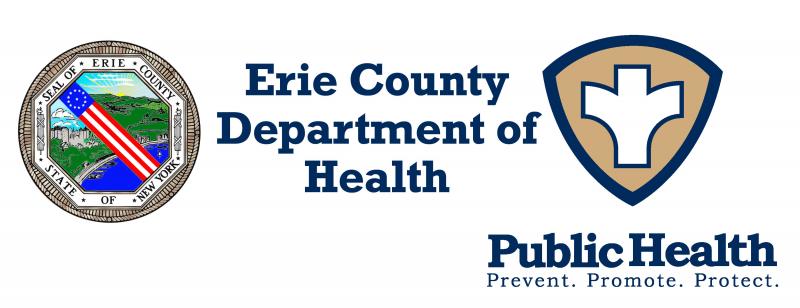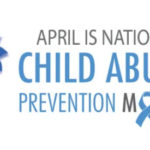ERIE COUNTY – The Erie County Department of Health (ECDOH) is joining with other Erie County departments to celebrate National County Government Month (NCGM) in April. National Public Health Week (NPHW) (April 3-9) coincides with NCGM, and offers a chance to highlight some of the public health services that promote community health and safety.
ECDOH manages dozens of programs, from environmental health and emergency medical services, to harm reduction and early intervention, to the county’s Public Health Lab and Medical Examiner’s Office. Using NPHW themes, we are highlighting seven Erie County initiatives that demonstrate the range of public health works for disease prevention, health promotion and improved quality of life.
Community
Earlier this year the Office of Health Equity produced its first annual Health Equity Report: An Initial Health Disparities Assessment. The report examines health disparities that exist in our community, incorporating a health equity lens, social determinants of health and data that documents gaps in health outcomes. Full report: https://www3.erie.gov/health/sites/www3.erie.gov.health/files/2023-02/healthequityreport.pdf
Violence Prevention
Violent acts can be deadly and can cause life-long health complications for individuals. The long-term trauma and grief felt by individuals, families and community is complex and intense. With these facts in mind, Erie County declared gun violence as a public health crisis. Federal agencies like the Centers for Disease Control and Prevention (CDC) and medical organizations like the American Academy of Pediatrics have done the same. The Erie County Gun Violence Prevention Task Force, established in 2021, is charged with preparing programs and initiatives addressing six areas of concern:
- decrease gun violence among youth;
- increase funding to programs specifically designed to reduce gun-violence;
- work with local law enforcement agencies to create strategies to reduce the number of illegal firearms in Erie County;
- work with populations that have been marginalized to provide education on gun violence, issues and solutions;
- advocate for relevant policies that improve health in communities of color;
- support Local, State, and Federal programs that advance anti-gun violence initiatives.
Reproductive and Sexual Health
Did you know that our department has a Family Planning Center and a Sexual Health Center at 608 William Street in Buffalo? This facility provides confidential medical services that support patients – testing, treatment and education. No one is ever denied services based on their ability to pay. http://www.erie.gov/familyplanning and https://www.erie.gov/sexualhealth
Mental Health
The ECDOH Office of Health Equity coordinates Mental Health First Aid trainings for the general public, businesses, organizations, schools, block clubs, faith communities and more. There are trainings for adults who interact primarily with adults, and for adults who interact primarily with teens. “Mental Health First Aid” training helps people assist someone experiencing a mental health or substance use challenge or crisis. It takes the fear and hesitation out of starting conversations about mental health or substance use by improving understanding and providing an action plan that teaches people to safely and responsibly identify and address potential issues. More information and upcoming trainings at: http://www.erie.gov/mhfa
Rural Health
About 10% of Erie County residents live in rural areas. CDC notes that nationwide, rural Americans are at greater risk of the five leading causes of death than urban Americans: heart disease, cancer, unintentional injury, chronic lower respiratory disease, and stroke. Ways that rural Americans and everyone can protect themselves: be physically active, eat right, don’t smoke, wear your seat belt, and see your doctor regularly.
More from CDC: https://www.cdc.gov/ruralhealth/index.html
Accessibility
Also from the Office of Health Equity, the newsletter for “Let’s Talk about Living with Disabilities” is full of information and resources for people who are living with disabilities and their caregivers. From the newsletter:
You can get the best possible care from your doctor and the people around you by learning how to listen to your body and speak up for your needs:
- You know your body best. Notice how you feel when you are well and what is different when you are not well.
- Talk openly with your doctor and caretakers about your concerns.
- Find healthcare providers that have experience treating people like you.
- Ask to make sure that you can physically get to and get inside your health care provider’s office, wait comfortably, and access examining tables as needed.
- Bring a friend or take notes if you are concerned you might not remember or fully understand what your provider tells you. Ask as many questions as needed.
- Bring a list of all the medicines you take with you to health care each visit.
Food and Nutrition
The theme of Food and Nutrition is a fitting place to focus on #ErieGrown, an initiative of the Erie County Department of Environment and Planning and the Office of Agriculture. Access to fresh fruits and vegetables is one part of a healthy and balanced diet. Erie Grown makes it easier to find local produce from local farms and agribusinesses. Their web site has farmers’ market maps, community garden information, a produce locator, food preservation information, recipes and much more. See: www.erie.gov/eriegrown












